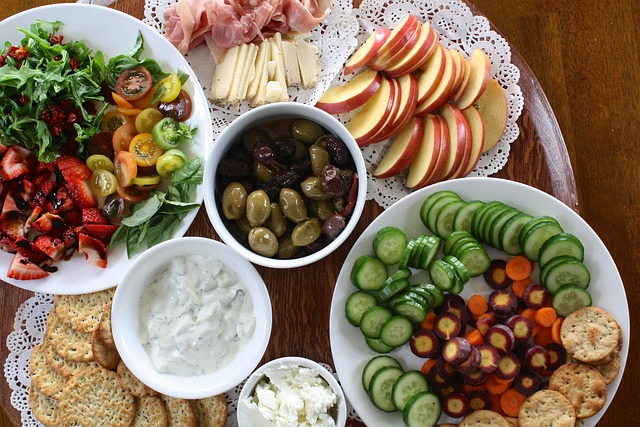
When many people hear the word nutrition, they automatically think of dieting or weight loss. Although weight loss and dieting are some specific areas of nutrition, they aren’t the only ones. Good nutrition involves hydration, high vitamin intake, weight maintenance and many other elements. Different lifestyles demand different nutrition plans. You’ll find more information here on what this means and what types of plans can help. When you’ve got this info down, you’ll be ready to make the best choices for you.
Salads have long been thought of as health foods; however, the dressings many people use are unhealthy. Creamy dressings, especially, are full of fat and empty calories. A better option is a low-fat vinaigrette; you might also prepare your own homemade topping with a combination of vinegar and virgin olive oil. You can also add cranberries or walnuts to your salad.
Do not underestimate the importance of adequate dietary fiber. Fiber can help make you feel stuffed, and that can help you lose weight. It can also help you lower your blood cholesterol level. Fiber helps you to lower your risk of cancer, heart disease and diabetes, too.
If you’re always traveling, try having protein bars on hand. Finding a healthy meal in an airport can be hard. You’ll find yourself rushing through security lines, waiting for your flight, and then flying at ten thousand feet with no food. Be sure you have a few of these bars to satisfy your hunger pangs until you can get a decent meal when you land.
The proper nutrition can help fine tune your body. To get all the proper vitamins that you need daily, include a multivitamin supplement each day. Look at the supplement section of your local health food store, and you’ll be able to find something that’s perfect for your needs. If you’re 20, don’t bother with a senior’s formula! Be sure to take your vitamin with a full glass of water.
The highly milled grains, such as white flour, have become very unpopular with nutritionists. It is the shells or husks of grains that provide most of their nutritional value; these husks are stripped away by extensive milling. Why get rid of this from the grains you eat to only replace it with wheat germ or other additives? No. This does not make any sense when you could get your nutrients from eating the whole grains.
Putting together a delicious smoothie can be enjoyable and fulfilling. If, however, you want to ramp up the nutritional content of your smoothie, try this tip. Add some flax seed with omega 3 fatty acids or cocoa powder (which has antioxidants) to the smoothie. Either of these two ingredients is a winner, as they taste great and will help improve your immune function.
Try eating a variety of foods like nuts, low-fat dairy, fish, different types of fresh produce, and whole grains. If you eat many different items, you’ll get all the nutrients you need.
If you are ill, consume foods with a lot of zinc in order to assist in the recovery process. Zinc strengthens your immune system, allowing you to rebound more quickly and protecting your health down the line. Delicious, zinc-rich foods include wheat germ, fresh peaches, unsalted pumpkin seeds and strawberries. Many of these items have antioxidants that fight free radicals.
Saying goodbye to your favorite dessert is a tough nutritional sacrifice many people have to make. It doesn’t have to be goodbye for good, but indulging in sweet treats should become infrequent. Limit desserts to special occassions, or at least no more than once or twice a week.
“Better nutrition” and “going on a diet” aren’t necessarily synonymous. Nutrition deals with making sure that the body has all its necessary vitamins, minerals, hydration, and weight needed to survive and be healthy. Just keep in mind that ideal nutrition varies from person to person, and the same eating plan may not be right for everyone. If some information here applies to your body type, you should follow the advice to help your body achieve optimal health.